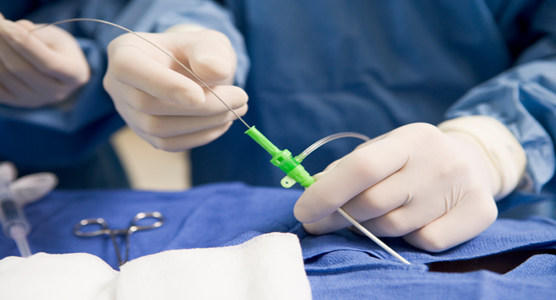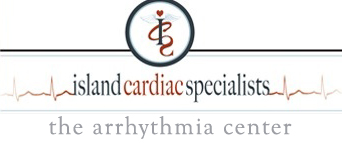|
 |
| ARRHYTHMIA MANAGEMENT/ELECTROPHYSIOLOGY STUDIES Many patients suffer for years with debilitating palpitations (rapid heart beats) or recurrent episodes of lightheadedness and passing out. Despite extensive medical evaluations from multiple physicians, their problem may not be diagnosed. In other instances, they are told that their problems are related to anxiety or are "in their head". Our experience has suggested to us that in most of these cases, the problem is not the patient, but rather the diagnostic approach used in getting to the bottom of their symptoms. The electrophysiology study is a way for cardiac electrophysiologists to do a check-up on the conduction system of your heart. We pass thin wires from your leg up into your heart. The wires are capable of both recording the electrical activity of your heart and also of using tiny amount of electricity to stimulate pace your heart. By observing both the natural conduction of the heart as well as the response of the heart to electrical stimulation, your electrophysiologist can obtain a great deal of information about the way in which your heart is wired. In some cases, we may find that the heart is prone to temporarily slowing down or stopping. In other instances we may discover that the heart has extra electrical pathways which predispose to fast heart rhythms. In some patients, we may even discover a propensity for life threatening heart rhythms. Fortunately, once diagnosed, each of these problems is treatable, and often, curable using catheter or device based therapies. We believe strongly that the right diagnosis is the first and most important step in getting to an effective treatment. In appropriately selected patients, the electrophysiology study can yield a wealth of information to guide clinical management. Am I awake for my electrophysiology study? If the study shows an arrhythmia, will you
fix it during the same session? How successful is ablation for SVT? If the study shows that I need a pacemaker
or defibrillator, will you perform this at the same session? |
The Arrhythmia Center at ICS • 516-877-2626 • 1401 Franklin Avenue, Garden City, NY 11530 |
